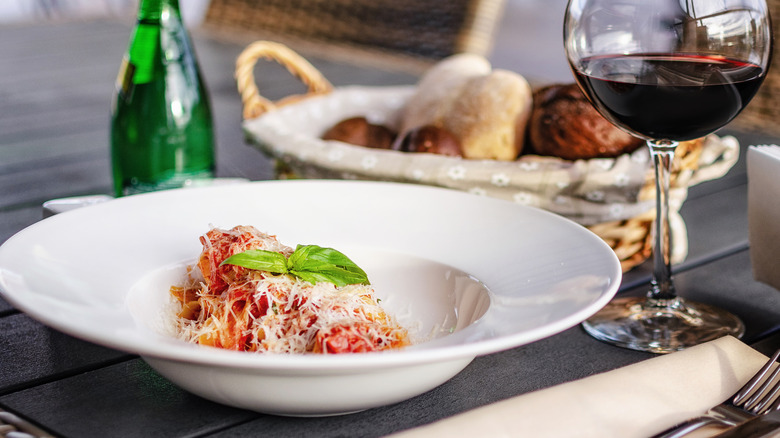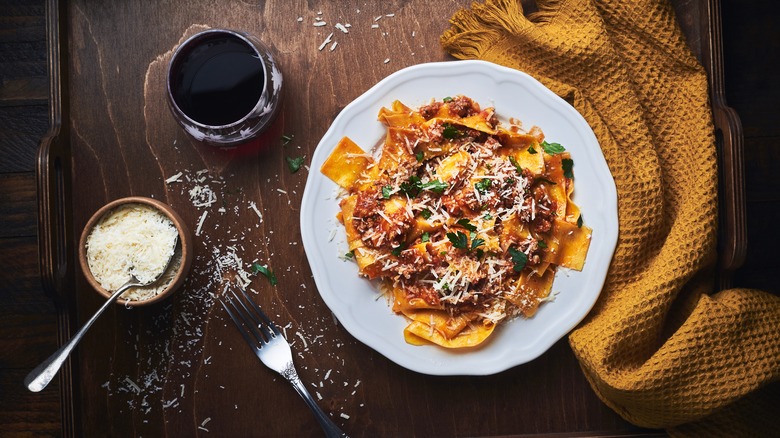Why You Should Probably Pass On The Extra Parmesan When Dining In Italy
In Italy, there are some food rules you need to follow. While most of us know that ordering a cappuccino after lunch is a no-go, when it comes to parmesan cheese, Italians happen to be particularly fastidious. One of the most used cheeses in all of Italian cooking, the kind available in Italy is far more potent and flavorful than any brands you could get in the U.S. In spite of this, however, you shouldn't ask for, and likely will not receive, extra parmesan to go along with your dinner.
There are a few reasons why you should avoid doing this. For one, when your food comes out of the kitchen it is presented exactly how the chefs believe it should be eaten. Though the inclination may be to douse any kind of pasta with multiple helpings of cheese to do so would be considered rude to the chef.
On the flavor front, too much parmesan could negatively affect the dish, especially fish and other seafood. Due to its sharpness and saltiness, adding extra can completely overpower any ingredient that cannot stand up to its bite. However, if you absolutely cannot be without your extra cheese, there is a way to go about asking for it that is marginally less rude and won't substantially affect the flavors.
When it's (kind of) okay to ask for extra parm
In order to properly request some extra parmesan cheese, you need to be aware of what you're eating. There are some meals where extra cheese, though unnecessary, is not entirely out of the question. For example, additional parmesan won't overpower dishes that feature heavy, dense sauces like ragù meat sauce or San Marzano tomato sauce.
Keep location in mind as well. If you're eating in Rome, for example, remember that each of its four staple pasta dishes use a lot of cheese. Therefore, there is really no reason to add extra. Also, native Italians never sprinkle extra parmesan on pizza.
If you feel you must add cheese, your best bet is to get a fresh wedge brought to your table. That way can grate it yourself, which is always preferable to pre-grated cheese due to the fact that the pre-grated version often contains certain amounts of fillers and preservatives to keep it from going bad. These not only mute the flavors of the cheese but also make it less likely to melt and blend naturally with the dish.

